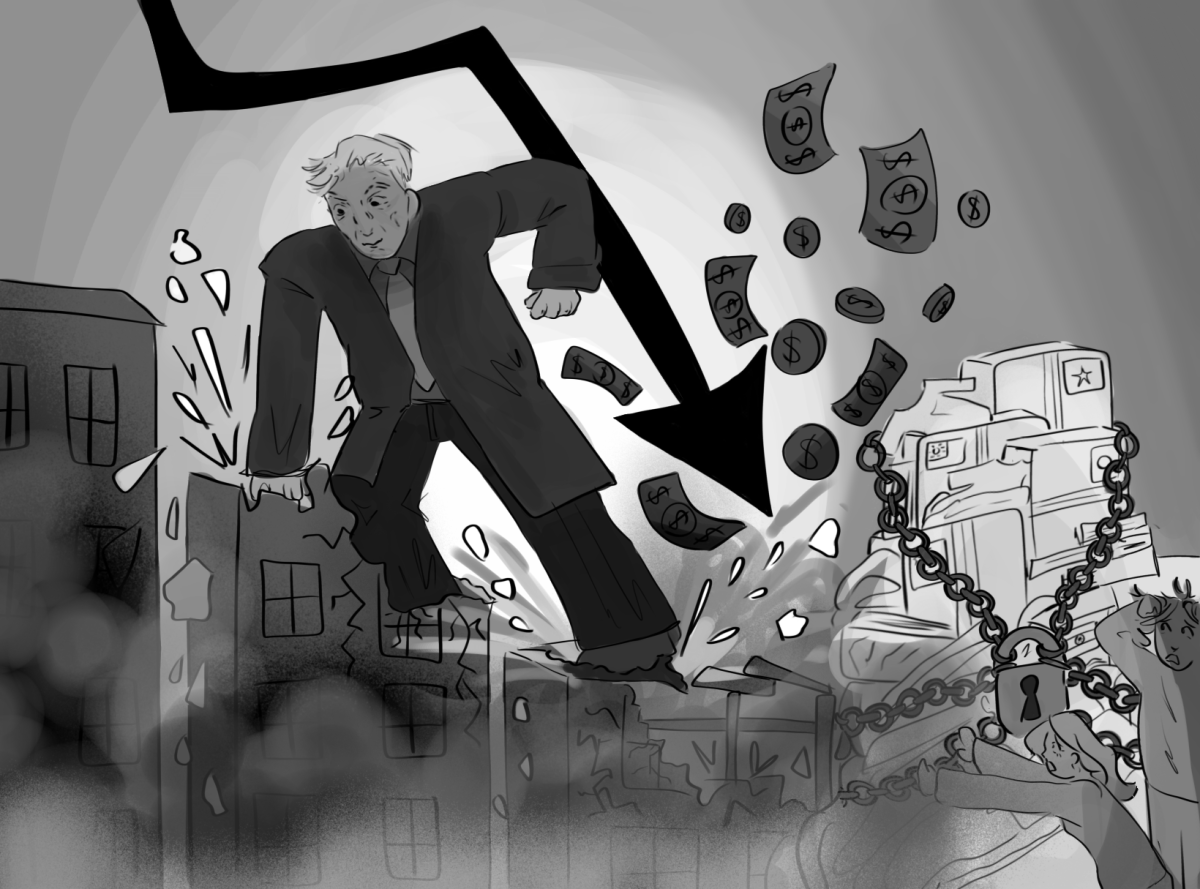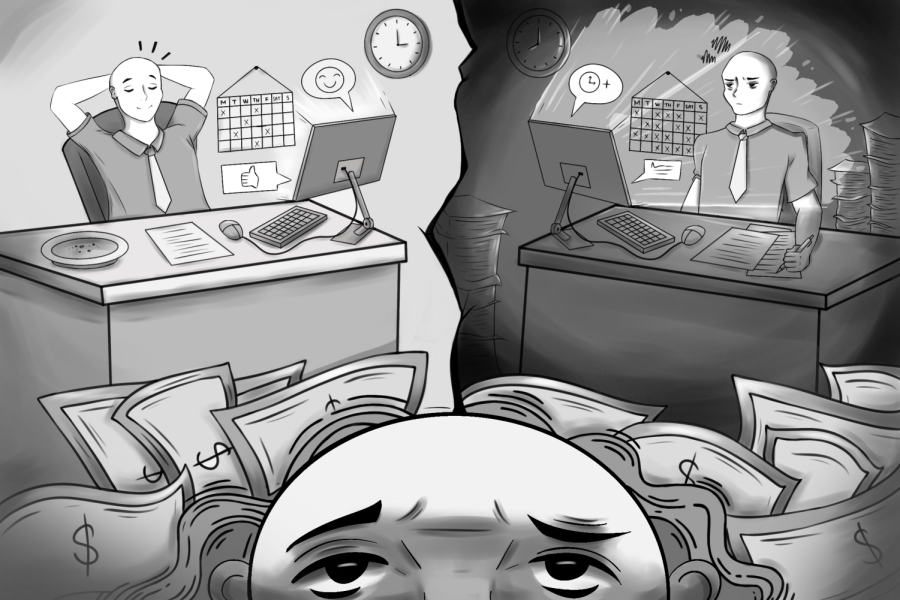Quiet quitting, a new trend among the younger workforce, is challenging Americans’ long-held individualistic work mentality. Instead of following the American Dream, where working hard and aiming high is key to success, youth no longer succumb to the pressure to go above and beyond in their duties. Instead, they are embracing a culture where workers do what their job pays—nothing more.
Quiet quitting is a beneficial way to maintain a work-life balance by refusing to overextend oneself and sticking to work requirements. Despite what its name suggests, quiet quitting is not quitting altogether; it’s a way for individuals to regain control of their lives by setting limits on what they are expected to do.
Many business owners have expressed their ire at quiet quitting, claiming that work gives employees a purpose in life, and quiet quitting threatens this fulfillment. Figures such as Arianna Huffington, co-founder of the Huffington Post, state that the philosophy is “a step towards quitting on life.”
However, opponents misinterpret what quiet quitting actually is: a solution to ‘hustle culture.’ This culture prioritizes work and a never-ending pursuit of success defined by promotions and salary raises. As a result, employees who adhere to ‘hustle culture’ run the risk of perpetual exhaustion accompanied by excessive stress, insomnia, and heart disease. Counterintuitively, this impedes employee productivity and severely reduces quality of life. Quiet quitting serves as an antidote to this by setting the bar lower. Workers find fulfillment in meeting expectations instead of running themselves dry for recognition.
Taking back one’s time is one major component of the movement that quiet quitting attributes its popularity to. People clock in and clock out as per their job requirements, shifting the focus of one’s life away from work and onto their personal life. It frees up time for self-actualization, where workers have the opportunity to explore their full potential — whether it be through continuing their education or picking up new hobbies.
Not only is quiet quitting a way to improve one’s life, it also defies a toxic and grueling work culture. It’s far easier to burn out today, as school responsibilities and graduation requirements make it harder for students to keep up with job duties. As teens continue to take on minimum wage jobs while juggling personal obligations, doing the minimum at work should be the norm, not the exception.
As with most mindsets, quiet quitting is not black and white. In essential interpersonal careers such as teaching or medicine, quiet quitting is detrimental to those that rely on these careers. In such careers that serve people rather than corporations, quiet quitting should not be encouraged since, like any human relationship, they require a lot of work to thrive.
In an ideal future, work would not be characterized by accomplishment but by fulfillment. This means that employees are actively encouraged to take breaks and prioritize their personal lives. Quiet quitting is one step in the right direction when it comes to repairing work culture, and it’s why more students should adopt this mentality as they enter the workforce.

















































![Escaping the College [Admissions] Rat Race](https://oagamut.com/wp-content/uploads/2023/05/mayoped-750x900.jpg)

